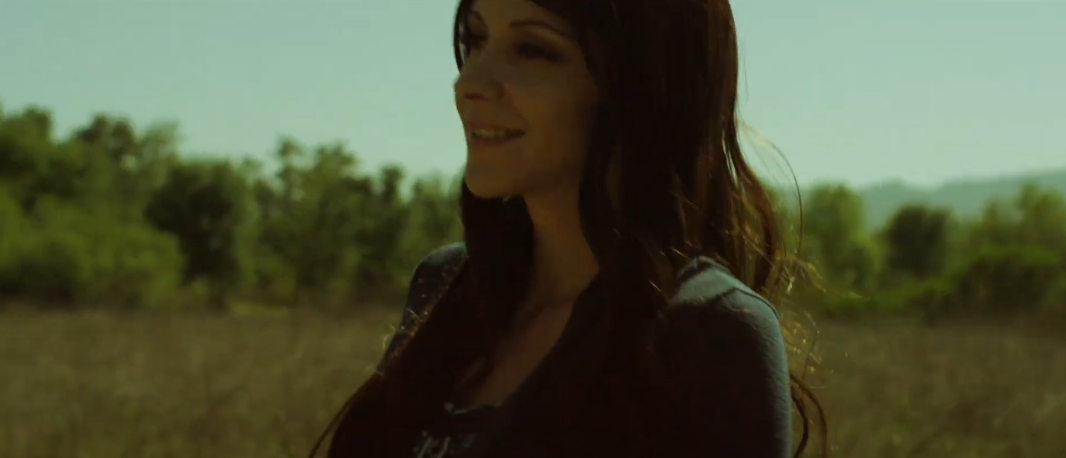Gregory Hatanaka’s Darling Nikki is a dreamy, drug-laced descent into one woman’s fractured psyche—a neon noir that tries to merge erotic fantasy with psychological drama, often teetering between the two without ever finding full footing. It’s the kind of film that feels like it should be sexy, but ends up more curious and melancholy than titillating.
At the center of this trippy swirl is Nikki (Nicole D’Angelo), a married woman leading a double life as a high-priced escort. Her days are spent playing the dutiful wife to James Duval’s detached husband, while her nights dissolve into candlelit encounters and pharmaceutical escapism. When a rival pimp takes notice of her, the pressure sends Nikki spiraling deeper into a fantasy world—one she can no longer separate from her waking life.
Visually, Darling Nikki embraces the excess of its premise. Hatanaka saturates every frame in luminous pinks, blues, and purples, a kind of feverish homage to late-night cable and Lynchian dream logic. The result is sometimes beautiful, sometimes bewildering—a kaleidoscope of soft-focus desire and emotional disconnection. The use of slow motion, overlapping voices, and stylized lighting evokes the surrealism of Mulholland Drive, though it never quite reaches that film’s haunting precision.
D’Angelo gives the film its pulse. She plays Nikki not as a cliché femme fatale, but as a woman quietly unraveling under the weight of her own contradictions. Her performance is often stronger than the material—grounded and empathetic even when the script’s dialogue drifts into abstraction. Duval, as usual, brings his peculiar mix of sensitivity and aloofness, though his chemistry with D’Angelo feels more existential than erotic.
For a movie that circles around sex and fantasy, it’s surprisingly tame. Despite its “TV-MA” tag and provocative setup, Darling Nikki avoids nudity almost entirely, which makes it feel at times like a “PG-13” fever dream about adult temptation. That restraint could have been intriguing if the film leaned harder into its psychological elements, but instead it leaves viewers wondering whether the story’s sensual core was edited out—or simply never there.
There’s a poetic undercurrent beneath the surface: a woman’s struggle to define her identity in a world that keeps fragmenting her into roles—wife, lover, object, dreamer. In its best moments, Darling Nikki captures that feeling of being trapped between the real and the imagined, between what’s desired and what’s destroyed. But it’s also uneven, sometimes self-consciously “artsy,” and too content to drift without deepening its themes.
Ultimately, Darling Nikki is less a conventional drama than a mood piece—an experiment in tone, color, and feminine disassociation. It’s a film that dares to be strange, and though it falters in pacing and coherence, it’s never boring to look at. Hatanaka’s direction might not satisfy fans seeking a clear story or explicit thrills, but for those drawn to films that linger in the borderland between fantasy and despair, Darling Nikki offers a hazy, hypnotic invitation to get lost.
Verdict: Visually bold and emotionally fragmented, Darling Nikki is a seductive mirage—part art film, part cautionary tale, and part missed opportunity. Nicole D’Angelo’s performance keeps it afloat, even when the script wades too deeply into its own surrealism.
Jessie Hobson



